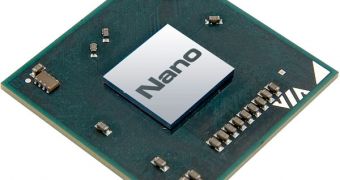The latest reviews and tests made by a number of sites show that, on the low-power area, Via's Nano processor leaves Intel's Atom chip behind. The processors were tested on similar desktop systems by all the reviewers. For the Nano-based system, a prototype Mini-ITX motherboard with a 1.8GHz Nano L2100 processor were used, while the 1.6GHz Atom 230 processor was installed on an Intel D945GCLF Mini-ITX motherboard.
"Both the VIA Nano and Intel Atom processors and platforms have their own positives and drawbacks but it was really the Via Nano L2100 processor that impressed me the most," wrote Ryan Shrout from PC Perspective.
HardOCP and HotHardware sustained Shrout's verdict. They also found Via's low power processor as having more processing capabilities than Intel's Atom.
"Coming from a very small CPU design team here in the US, the Isaiah architecture is able to outperform Intel's similarly priced and placed Atom processor while offering a much more open platform design," Shrout wrote.
"I have to admit, I expected the Via Nano to come out on top given its superscalar out of order architecture, but I did not expect the Intel Atom to take such an overall beating," wrote Kyle Bennet, managing editor of HardOCP's motherboard and CPU site, in a summary of his findings. "The Nano looks like a power efficient version of the Pentium 4 while the Atom looks like a power efficient version of the VIA C7."
No doubt that the higher clock speed featured by the Nano chip might have given it a slight advantage over Atom, but the performance gap between the processor was too big to believe that only this contributed.
"While the VIA Nano L2100 processor we tested had a 200MHz, or 12.5 percent, higher clock frequency than the 1.6GHz Atom 230, it typically outperformed the Atom by more than 15 percent to 20 percent in the applications we tested," explained HotHardware's Marco Chiapetta in a review.
The Nano processors have been shipped to hardware makers since May, while the motherboards based on the chip are expected to arrive in August. The first Nano-based systems should begin shipping somewhere during the fourth quarter of 2008.

 14 DAY TRIAL //
14 DAY TRIAL //